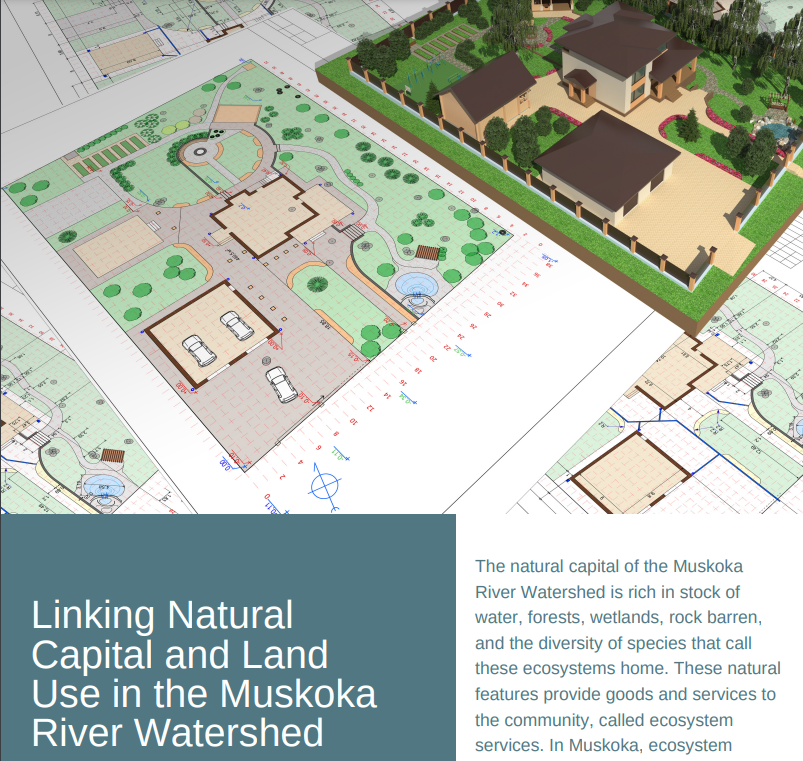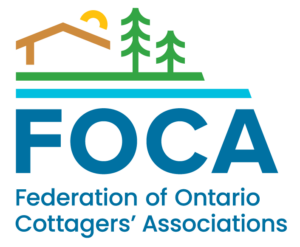
FOCA has been vocal to government about the need to address Water Management Plans (WMP) and reinstate public consultation in the process.

With tens of thousands of members on the front-lines of Ontario waterways, FOCA insists that public consultation and new approaches are needed, in the face of changing water regimes affected by accelerating climate impacts.
Access online information posted by the Province about Water Management Plans.

October 2022: As part of Phase 2 of the District of Muskoka‘s “Making Waves: Integrated Watershed Management” Initiative, a review of land use policy is underway to identify how natural capital (water, forests, wetlands, rock barrens, species) could be effectively managed through an ‘environment-first’ approach across the entire watershed, in order to sustain ecosystem services for the community and the economy. Learn more about Linking Natural Capital and Land Use. (download PDF, 2 pages)

August 2021: A win! – recent amendments passed for the Bonnechere River WMP are a significant achievement: Bonnechere River Water Management Plan: a major amendment to the Plan affects two of FOCA’s large member groups in the region: the Round Lake Property Owners’ Association, and the Golden Lake and Bonnechere River Property Owners Association. The plan has received approval for revised draw-down limits on the Bonnechere system by Renfrew Power Generation. The hope is to prevent future flooding, like that experienced in the area in 2017 and 2019. Read about the development – the work of 15 years of tireless efforts by the stakeholders (local lake associations, First Nations and other community interests, with the support of their local municipalities) – in an article in the Eganville Leader.

Interested in weighing-in on your local Water Management Plan? First review the 2016 Technical Bulletin from MNRF about Maintaining WMPs, including the amendment process (PDF, 35 pages)

Key context, and FOCA’s work on this file:
The following information is available to FOCA Members. Need help with your login? Contact us! Not yet a Member? Find out why you should be!
Please note: the following is archival material, and some links to third-party resources may no longer be active.
October 2020 – Climate change threatens Canada’s dams – but who’s keeping track? A report by engineering firm Greck and Associates Ltd. noted that Ontario alone has more than 5,000 dams and weirs. “Many dams are approaching or have exceeded their normal life expectancy,” the report noted. “They are in poor condition and no longer provide their originally intended function. They present risks to public safety, owner liability issues, and impacts to the natural environment.”(Globe and Mail)
FOCA is part of the P4A (Partners For Action) Stakeholder Group, as part of our ongoing interest in making our communities stronger in the face of climate change. In July 2016, P4A released a new report: At the Front Lines of Flood: How Prepared are Ontario Communities? Some highlights:
- Flooding is a major source of socio-economic vulnerability in small and medium-sized Ontario communities, placing unnecessary strain on municipal resources
- Communities are acting to manage vulnerability to flood, but these efforts are fragmented, creating uncertainty about their effectiveness. Communities also lack institutional and financial capacity to enforce, update and further invest in these actions to improve resiliency
- Federal and provincial policy and funding to reduce vulnerability and improve capacity of our communities to prepare and recover from flood are underutilized and underdeveloped
- There is a strong divide in capacity to understand and address flood risk between urban and rural communities
- Municipalities need funding, capacity, technical and scientific support, regulation, and community and political buy-in to address the present and future risk of flood
- Provincial and federal governments should address the current leadership gap and prioritize community resiliency to flood by supporting communities in understanding and communicating risk and opportunities to reduce this risk.
2016 – Guidance from MNRF is intended to address some of the outstanding concerns expressed by waterfront property owners about the frustrating “behind closed doors” method of updating (or NOT updating) Water Management Plans (WMPs).
On August 31, 2016 MNRF posted their “Maintaining Water Management Plans Technical Bulletin” (PDF, 35 pages) on the Environmental Bill of Rights EBR Registry Number: 012-8537
The new Technical Guidelines affirms that WMPs may require periodic amendments to ensure that the plans remain current, to include adaptive management or simply to provide clarity and certainty on how water levels and flows are managed. FOCA is pleased to see that, according to the Guidelines:
- any party with an interest in the WMP can bring forward issues to the attention of plan proponents, to the Ministry, or members of the Standing Advisory Committee.
- amendment requests can be related to dam safety, public safety, dam operations, the results of monitoring programs, construction of new dams or alterations to existing dams, or in response to local issues related to the management of water levels and flows.
The plan proponent is responsible for assessing amendment requests and preparing the amendment proposal. All amendments require approval by the Ministry. Note that changes to a dam’s operating regime may also be subject to other federal, provincial, municipal, conservation authority or other agency regulatory requirements. WMP amendments may be subject to additional public and First Nations and Métis consultations.
Sept 20, 2016 – Dam Mismanagement? (Water Canada post on class action lawsuit)
Sept 15, 2016 – Group files $900-million class action lawsuit against government over flood damages to Muskoka waterfront properties (muskokaregion.com)
April 25, 2016 – After another spring flooding season, and in the face of ever-changing hydro-climatic conditions in Ontario, FOCA wrote again to request an adequate response from the Minister of Natural Resources and Forestry, regarding the reinstatement of public consultation into the water management planning process in Ontario. FOCA feels this unacceptable and ongoing delay undermines public confidence in the water management work of the Province, and may unnecessarily put private property, public infrastructure, and public safety at risk.
August 25, 2015 – FOCA met with MNRF staff from the Crown Lands Branch to discuss our shared interests in Crown Lands, and the Water Management Plan (WMP) process currently under review/on hold. FOCA remains concerned with the effective “shutdown“ of the obligatory WMP reviews and the current undefined internal review period whereby there is no official process to trigger public or stakeholder input into the plans. FOCA was encouraged to hear that:
- During the time while MNRF reviews/revises a renewed approach and guidelines for Plan review, existing plans remain the overarching guidance for the respective water management regimes (flow and water levels in the respective watersheds);
- (While not actively encouraged) with “compelling rationale”, consultations or plan reviews can still be initiated at the discretion of the designated MNRF contact – usually a District Manager or designate.
It remains unclear how a lake association or a member of a Citizen’s Advisory Committee can trigger a Plan discussion with a proponent or with MNRF, or to prompt a Citizen’s Advisory group meeting:
- in the case of suspected non-compliance with the operating regime or other substantive aspects of an existing plan;
- in the face of new or emerging information or conditions that would necessitate a review of the existing operating regime and guidance (e.g. new Climate information, or changes to infrastructure)?
FOCA is still awaiting a response on this matter.
For related topics, visit FOCA’s additional webpages:
TSW & Rideau Canal Water Management
